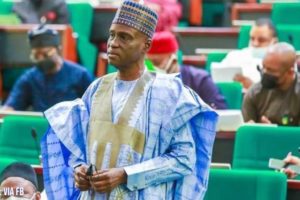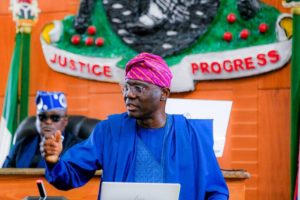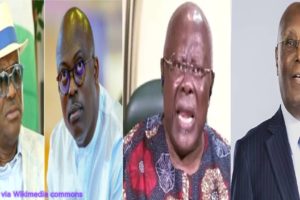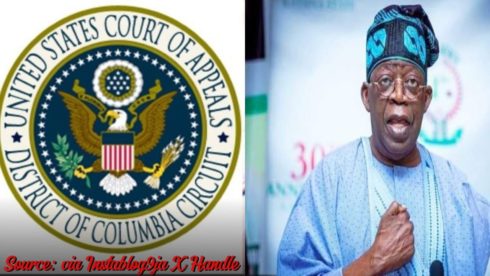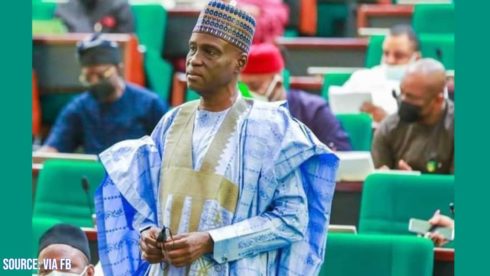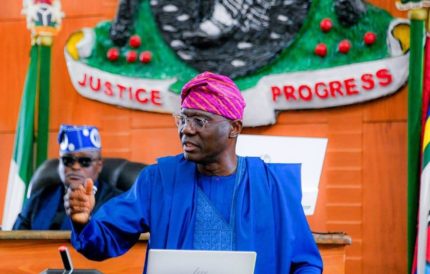The US Court of Appeals for the District of Columbia in Washington rejected Nigeria’s claim of sovereign immunity in a landmark ruling on August 9, 2024, paving the way for a Chinese consortium to seize Nigerian assets abroad. This decision marks a significant development in an ongoing legal battle that began in 2021, and represents a major setback for Nigeria’s efforts to manage the crisis.
The US court’s ruling threatens to expand the scope of the conflict beyond European jurisdictions, where President Bola Tinubu’s administration has been working to contain the issue. The decision could have far-reaching implications for Nigeria’s international relations, economic interests, and reputation. With the Chinese consortium now cleared to seize Nigerian assets in the US, the Nigerian government will need to take swift action to mitigate the effects of the ruling and prevent further asset seizures.
US Court: Chinese Consortium Gains Legal Ground in Asset Seizure
The Chinese consortium, comprising executives from the firm Zhongshan, initially won an arbitration award in the United Kingdom in 2021. The award included $55.6 million in compensation, $75,000 in moral damages, plus interest and legal fees, stemming from a breach of contract by Nigeria.
With the US court’s decision, the consortium now has the legal authority to pursue the seizure of Nigerian assets within the United States. This ruling significantly strengthens the Chinese firm’s position and expands its options for recovering the awarded damages.
Nigeria’s Sovereign Immunity Defense Fails
Nigeria’s legal team had argued that the country was protected by sovereign immunity, which typically shields nations from lawsuits in foreign courts. However, the US appellate court rejected this defense, citing that Nigeria had “gruesomely violated” the fundamental and commercial rights of the Chinese executives.
This ruling sets a precedent that could have far-reaching implications for Nigeria and other nations relying on sovereign immunity defenses. It potentially exposes Nigeria to further legal challenges and asset seizures in international jurisdictions, undermining its ability to protect its sovereignty and assets abroad.
Escalating Crisis for Tinubu’s Administration
The US court’s decision has dramatically escalated the crisis facing President Tinubu’s administration. What began as a European legal issue has now crossed the Atlantic, threatening Nigeria’s interests in the world’s largest economy.
The administration now faces the daunting task of preventing asset seizures in the United States while simultaneously managing the fallout in Europe. This multi-front legal battle will require a coordinated strategy involving diplomatic, legal, and possibly economic measures to protect Nigeria’s interests and assets globally.
Impact on Nigeria’s International Relations
The court ruling has the potential to strain Nigeria’s relationships with both China and the United States. It puts Nigeria in the difficult position of navigating between two global superpowers while trying to protect its own interests.
The Nigerian government will need to engage in careful diplomacy to maintain positive relations with China, a major trading partner and investor, while also addressing concerns from the US government about the enforcement of international arbitration awards. This balancing act will be crucial for Nigeria’s economic and diplomatic future.
Potential Economic Consequences for Nigeria
The possibility of asset seizures in the United States poses a significant threat to Nigeria’s economic interests. The country may face challenges in conducting international transactions, attracting foreign investment, and maintaining the confidence of international partners.
To mitigate these risks, Nigeria may need to consider negotiating a settlement with the Chinese consortium or exploring legal avenues to challenge the US court’s decision. The outcome of this case could have long-lasting implications for Nigeria’s economic stability and its standing in the global financial system.
Table of Contents
Discover more from OGM News NG
Subscribe to get the latest posts sent to your email.

